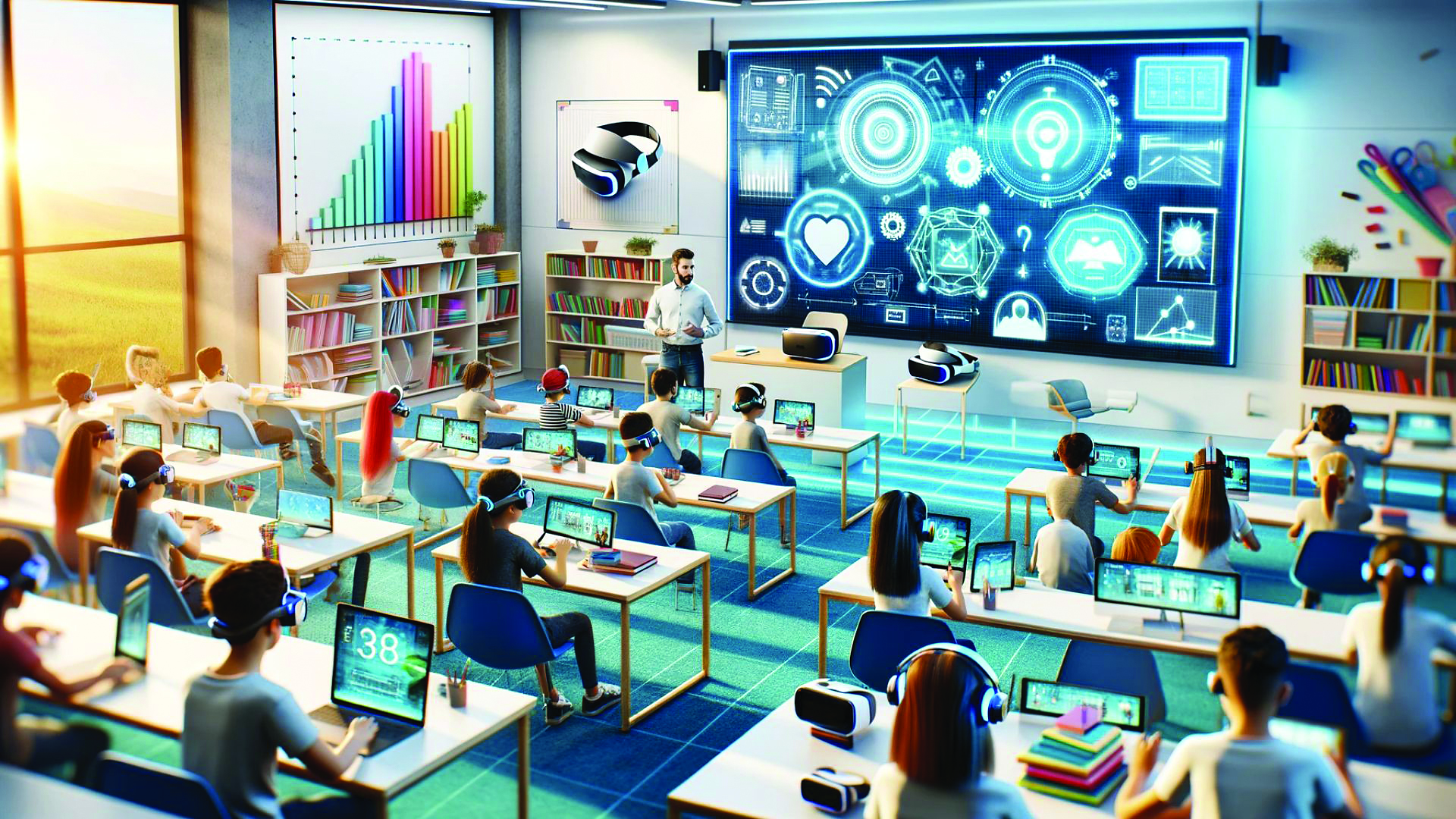In today’s digital age, students are true natives of the online world. With a simple click, they gain access to a vast expanse of information, transforming their screens into windows to the global knowledge base. This access is set to expand even further with the rapid advancements in technology, including AI, AR, and VR. These tools are revolutionizing education, creating new avenues for learning that were once unimaginable.
However, this digital transformation is not without its challenges. The seamless integration of technology into education brings with it a host of complexities. Despite the incredible opportunities offered by these tools, reliance on technology alone can be insufficient and requires a balanced approach. Teachers are at the heart of this balance. Their role is crucial in helping students navigate their digital experiences constructively.
It’s not just about using technology effectively but also about understanding the emotional and behavioral implications of its use. Building a bridge of trust and communication between teachers and students is essential as we advance technologically. Instilling core values and ethics in students remains a priority. Cyber etiquette, as an extension of traditional values, plays a significant role here. Practices such as respecting privacy, seeking consent, and honoring permissions are fundamental. As we weave technology into the fabric of everyday learning, it’s vital to educate and train teachers on how to foster appropriate digital behavior.
The need for teacher upskilling has never been more pressing. Educators must be adept not only in the latest technologies but also in managing the accompanying challenges. Upskilling is not just about keeping up with tech trends but also about equipping teachers to handle the emotional and behavioral dynamics that come with a digital classroom.
Teachers today are not just imparting knowledge; they are creating environments that encourage critical thinking, problem-solving, and collaboration. They are co-learning with their students, embracing technology to enhance learning experiences. This shift demands continuous professional development (CPD) to stay relevant and effective. At Birla Open Minds Education Pvt Ltd, we recognize this need and are committed to addressing it. Through our LearnLeap initiative, we offer a comprehensive suite of teacher training programs, ranging from Early Childhood Care and Education (ECCE) to leadership training for principals. Our goal is to create an ecosystem where educators can continuously upskill and adapt to the evolving educational landscape.
The National Education Policy (NEP) and National Credit Framework (NCrF) emphasize the importance of ongoing teacher training. These frameworks align with the Sustainable Development Goal 4 (SDG4), which aims to ensure inclusive and equitable education and promote lifelong learning opportunities for all. As we strive to meet these goals, teachers remain pivotal in enhancing student outcomes and advancing the quality of education.
As educators, our role is evolving. We must embrace these changes and ensure that we are well-prepared to guide our students through their educational journey. By focusing on continuous upskilling and adapting to technological advancements, we can create a learning environment that is both innovative and supportive. This approach will ultimately contribute to the achievement of SDG4 and the advancement of education across the globe.
The author is the Director and COO of Birla Open Minds Education Pvt Ltd.







